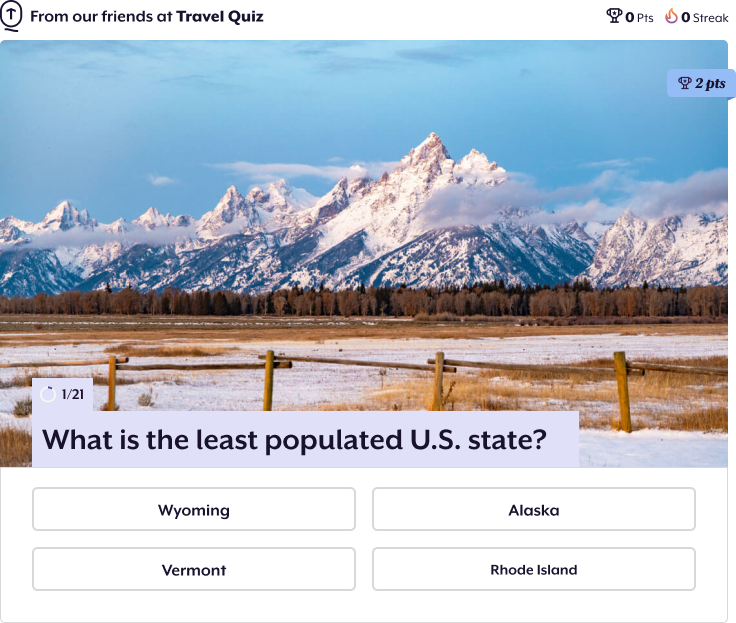For those thinking about relocating to another state in the future, it’s important to brush up on local income tax laws. While you’ll end up paying federal income tax everywhere in the U.S., certain jurisdictions impose additional statewide income tax rates as high as 13.3%. These lofty rates may be too prohibitive for some, but thankfully, there are eight states that don’t levy any income tax at all, according to data provided by the Tax Foundation. Here’s a look at eight U.S. tax havens that may be especially attractive to prospective residents.
Wyoming

Along with the fact that it’s one of the least populous states in the nation, Wyoming doesn’t levy any personal income tax, making it a particularly attractive place to reside. While the state government adopted a corporate income tax in 1911, it has held off on a personal income tax since achieving statehood in 1890.
Most of the public projects in Wyoming are funded through the state’s 4% sales tax, which, combined with local taxes, can reach as high as 5.44% in certain local municipalities.
Florida

Florida is well known as a tax haven, attracting everyone from high-earning athletes to retirees who want to avoid having their retirement funds taxed too heavily. Much of that has to do with the lack of personal income taxes in the Sunshine State.
This has been the case since 1968, when a new state constitution was ratified that prohibited the collection of a personal income tax. To make any changes to the state’s tax law in the future, Florida law requires a two-thirds supermajority of the state’s House of Representatives to vote in favor of such changes, so it’s likely the lack of income tax is here to stay.
Nevada

Not only does Nevada lack personal income tax, but the state also doesn’t impose any sort of corporate income tax, either. This makes Nevada a particularly attractive state for individuals and businesses alike. In fact, Nevada has never levied a personal income tax on its residents since it became a state back in 1864.
Instead of relying on income tax to pay for public projects, the state collects gaming taxes from those who win big in places like Las Vegas. Still, Nevada’s gaming taxes are among the lowest in the nation at 6.5%.
South Dakota

Its northern counterpart levies one of the lowest state income taxes in the country at just 2.5%, but South Dakota has the edge — it imposes no personal income tax on its residents. To make up for the lack of an income tax, locals are subject to a 4.2% state sales tax rate and a 1.01% effective property tax rate.
Tennessee

While Tennessee imposes a 6.5% corporate income tax rate, no such tax exists on individuals who reside in the state. There’s no estate or inheritance tax, either. While there have been past attempts to impose personal income taxes on the people of Tennessee, they’ve been struck down by the state court each time, including in the 1932 case Evans v. McCabe.
Texas

Everything’s bigger in Texas — except personal income tax. Despite paying a 6.25% state sales tax rate and a 1.47% property tax rate, those living in the Lone Star State won’t have any state income taxes taken out of their paychecks.
Per Texas law, a theoretical income tax would be imposed only if locals voted in favor of doing so, with the money going toward property tax relief. However, in 2019, voters overwhelmingly approved Proposition 4, which instituted a ban on any income tax for the foreseeable future.
Alaska

Whether you’re single or jointly filing with a spouse, you won’t have to worry about paying income tax if you live in Alaska. However, this wasn’t always the case. Back in 1949, while it was still technically a territory, Alaska levied an income tax equal to 10% of a person’s federal income tax liability — a number that jumped to 16% by 1961.
But in 1980, a few years after the Trans-Alaska Pipeline brought billions of dollars in revenue to the state, Alaska eliminated its personal income tax altogether. While there’s still no individual income tax today, there is a graduated corporate income tax that can reach as high as 9.4%, though that only applies to profits made by larger businesses.
New Hampshire

In 2025, New Hampshire became the newest addition to the list of states with no income tax. While New Hampshire previously imposed a 3% tax on interest and dividends, which come from investments like in the stock market, it repealed that tax beginning with the 2025 tax year. That means the Granite State officially no longer levies any form of personal income tax.
Finally, Washington state is an interesting case. While the state does not have a personal income tax per se, it does levy a capital gains tax of 7%. This also has to do with investments, specifically the amount of profit one makes trading stocks, bonds, or other similar securities. So while your paychecks won’t be taxed in Washington, you need to be aware of taxes on your investments.
More from our network
Daily Passport is part of Inbox Studio, an email-first media company. *Indicates a third-party property.

















